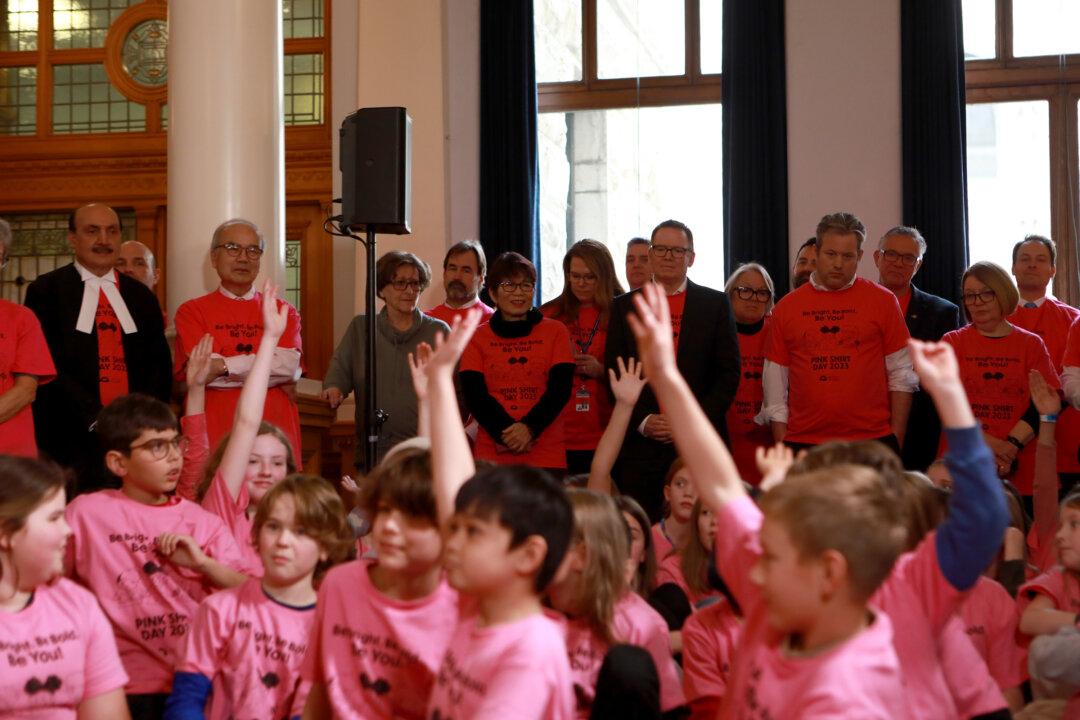A change in the promotional focus of Anti-Bullying Day across Canada has created concerns among some parental rights groups in the country, leading to a campaign to encourage a boycott of Pink Shirt Day on Feb. 28.
Led by Culture Guard, an organization focused on preserving traditional family values and fighting against what president Kari Simpson says is the “pride-ification of the nation,” she is encouraging parents and parental values groups to protest by keeping their kids home from school on Feb. 28 or by not wearing pink.





